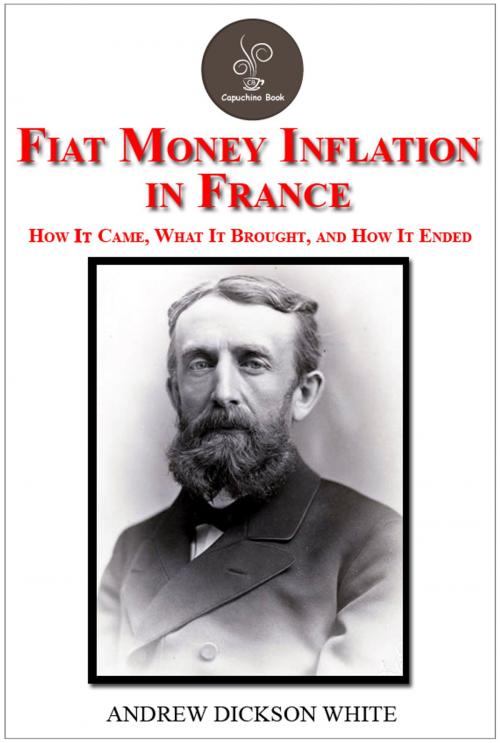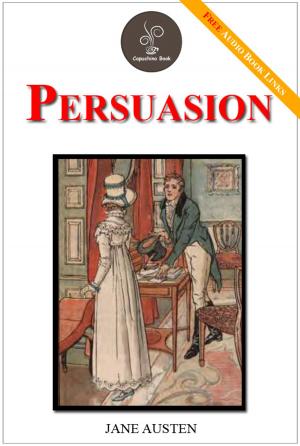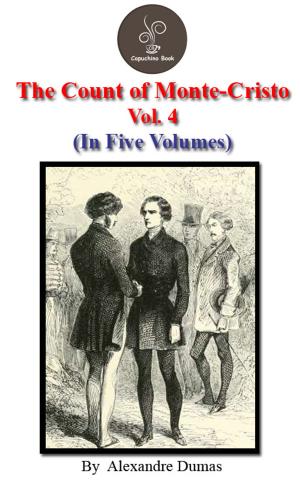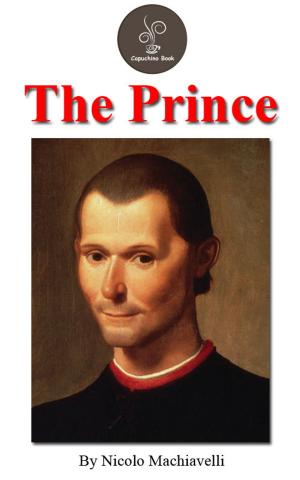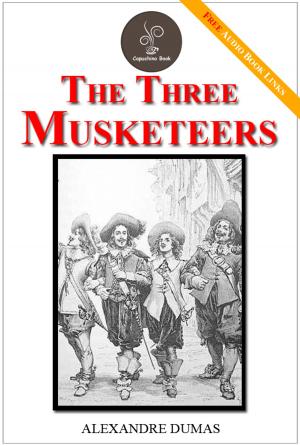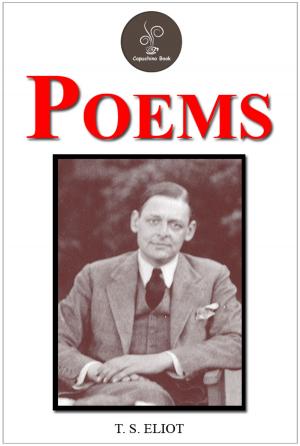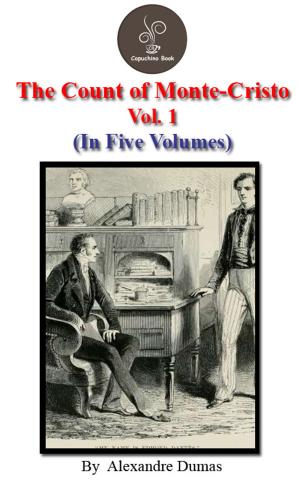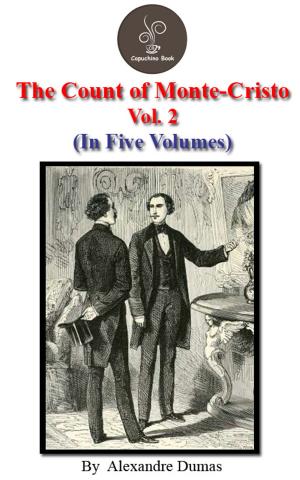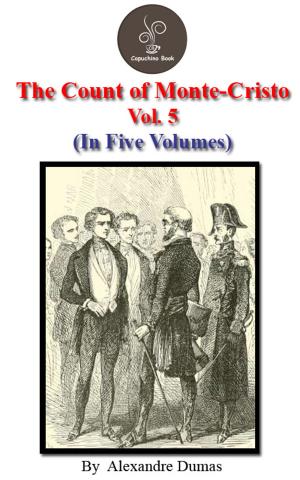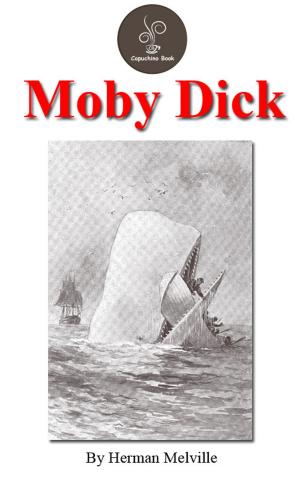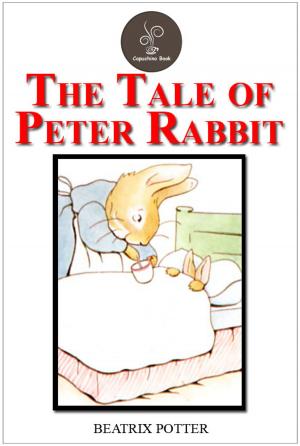Fiat Money Inflation in France by Andrew Dickson White
Business & Finance, Personal Finance, Investing, Finance & Investing| Author: | Andrew Dickson White | ISBN: | 1230000118049 |
| Publisher: | Capuchino Book | Publication: | March 28, 2013 |
| Imprint: | Language: | English |
| Author: | Andrew Dickson White |
| ISBN: | 1230000118049 |
| Publisher: | Capuchino Book |
| Publication: | March 28, 2013 |
| Imprint: | |
| Language: | English |
Fiat Money Inflation in France by Andrew Dickson White
-Included TOC for Reader.
-Included biography the author.
As far back as just before our Civil War I made, in France and elsewhere, a large collection of documents which had appeared during the French Revolution, including newspapers, reports, speeches, pamphlets, illustrative material of every sort, and, especially, specimens of nearly all the Revolutionary issues of paper money,—from notes of ten thousand livres to those of one sou.
Upon this material, mainly, was based a course of lectures then given to my students, first at the University of Michigan and later at Cornell University, and among these lectures, one on "Paper Money Inflation in France."
This was given simply because it showed one important line of facts in that great struggle; and I recall, as if it were yesterday, my feeling of regret at being obliged to bestow so much care and labor upon a subject to all appearance so utterly devoid of practical value. I am sure that it never occurred, either to my Michigan students or to myself, that it could ever have any bearing on our own country. It certainly never entered into our minds that any such folly as that exhibited in those French documents of the eighteenth century could ever find supporters in the United States of the nineteenth.
Some years later, when there began to be demands for large issues of paper money in the United States, I wrought some of the facts thus collected into a speech in the Senate of the State of New York, showing the need of especial care in such dealings with financial necessities.
In 1876, during the "greenback craze," General Garfield and Mr. S. B. Crittenden, both members of the House of Representatives at that time, asked me to read a paper on the same general subject before an audience of Senators and Representatives of both parties in Washington. This I did, and also gave it later before an assemblage of men of business at the Union League Club in New York.
Various editions of the paper were afterward published, among them, two or three for campaign purposes, in the hope that they might be of use in showing to what folly, cruelty, wrong and rain the passion for "fiat money" may lead.
Other editions were issued at a later period, in view of the principle involved in the proposed unlimited coinage of silver in the United States, which was, at bottom, the idea which led to that fearful wreck of public and private prosperity in France.
For these editions there was an added reason in the fact that the utterances of sundry politicians at that time pointed clearly to issues of paper money practically unlimited. These men were logical enough to see that it would be inconsistent to stop at the unlimited issue of silver dollars which cost really something when they could issue unlimited paper dollars which virtually cost nothing.
In thus exhibiting facts which Bishop Butler would have recognized as confirming his theory of "The Possible Insanity of States," it is but just to acknowledge that the French proposal was vastly more sane than that made in our own country. Those French issues of paper rested not merely "on the will of a free people," but on one-third of the entire landed property of France; on the very choicest of real property in city and country—the confiscated estates of the Church and of the fugitive aristocracy—and on the power to use the paper thus issued in purchasing this real property at very low prices.
I have taken all pains to be exact, revising the whole paper in the light of the most recent publications and giving my authority for every important statement, and now leave the whole matter with my readers.
At the request of a Canadian friend, who has expressed a strong wish that this work be brought down to date, I have again restudied the subject in the light of various works which have appeared since my earlier research,—especially Levasseur's "Histoire des classes ouvrières et de l'industrie en France,"—one of the really great books of the twentieth century;—Dewarmin's superb "Cent Ans de numismatique Française" and sundry special treatises. The result has been that large additions have been made regarding some important topics, and that various other parts of my earlier work have been made more clear by better arrangement and supplementary information.
ANDREW D. WHITE. Cornell University, September, 1912.
Fiat Money Inflation in France by Andrew Dickson White
-Included TOC for Reader.
-Included biography the author.
As far back as just before our Civil War I made, in France and elsewhere, a large collection of documents which had appeared during the French Revolution, including newspapers, reports, speeches, pamphlets, illustrative material of every sort, and, especially, specimens of nearly all the Revolutionary issues of paper money,—from notes of ten thousand livres to those of one sou.
Upon this material, mainly, was based a course of lectures then given to my students, first at the University of Michigan and later at Cornell University, and among these lectures, one on "Paper Money Inflation in France."
This was given simply because it showed one important line of facts in that great struggle; and I recall, as if it were yesterday, my feeling of regret at being obliged to bestow so much care and labor upon a subject to all appearance so utterly devoid of practical value. I am sure that it never occurred, either to my Michigan students or to myself, that it could ever have any bearing on our own country. It certainly never entered into our minds that any such folly as that exhibited in those French documents of the eighteenth century could ever find supporters in the United States of the nineteenth.
Some years later, when there began to be demands for large issues of paper money in the United States, I wrought some of the facts thus collected into a speech in the Senate of the State of New York, showing the need of especial care in such dealings with financial necessities.
In 1876, during the "greenback craze," General Garfield and Mr. S. B. Crittenden, both members of the House of Representatives at that time, asked me to read a paper on the same general subject before an audience of Senators and Representatives of both parties in Washington. This I did, and also gave it later before an assemblage of men of business at the Union League Club in New York.
Various editions of the paper were afterward published, among them, two or three for campaign purposes, in the hope that they might be of use in showing to what folly, cruelty, wrong and rain the passion for "fiat money" may lead.
Other editions were issued at a later period, in view of the principle involved in the proposed unlimited coinage of silver in the United States, which was, at bottom, the idea which led to that fearful wreck of public and private prosperity in France.
For these editions there was an added reason in the fact that the utterances of sundry politicians at that time pointed clearly to issues of paper money practically unlimited. These men were logical enough to see that it would be inconsistent to stop at the unlimited issue of silver dollars which cost really something when they could issue unlimited paper dollars which virtually cost nothing.
In thus exhibiting facts which Bishop Butler would have recognized as confirming his theory of "The Possible Insanity of States," it is but just to acknowledge that the French proposal was vastly more sane than that made in our own country. Those French issues of paper rested not merely "on the will of a free people," but on one-third of the entire landed property of France; on the very choicest of real property in city and country—the confiscated estates of the Church and of the fugitive aristocracy—and on the power to use the paper thus issued in purchasing this real property at very low prices.
I have taken all pains to be exact, revising the whole paper in the light of the most recent publications and giving my authority for every important statement, and now leave the whole matter with my readers.
At the request of a Canadian friend, who has expressed a strong wish that this work be brought down to date, I have again restudied the subject in the light of various works which have appeared since my earlier research,—especially Levasseur's "Histoire des classes ouvrières et de l'industrie en France,"—one of the really great books of the twentieth century;—Dewarmin's superb "Cent Ans de numismatique Française" and sundry special treatises. The result has been that large additions have been made regarding some important topics, and that various other parts of my earlier work have been made more clear by better arrangement and supplementary information.
ANDREW D. WHITE. Cornell University, September, 1912.
